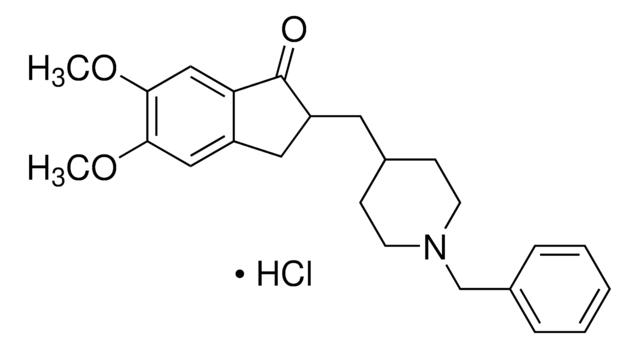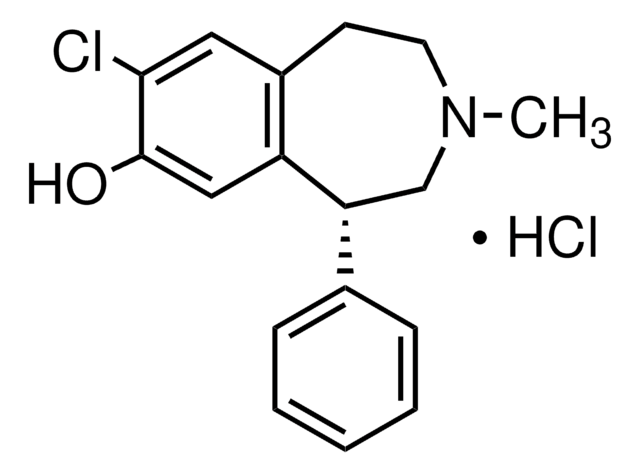About This Item
Recommended Products
Quality Level
Assay
≥98% (HPLC)
form
powder
storage condition
protect from light
color
white to beige
solubility
DMSO: 2 mg/mL, clear (warmed)
originator
GlaxoSmithKline
storage temp.
2-8°C
SMILES string
O.Cl.O=C(N[C@@H]1CC[C@H](CC1)CCN2CCc3cc(ccc3C2)C#N)c4ccnc5ccccc45
InChI
1S/C28H30N4O.ClH.H2O/c29-18-21-5-8-23-19-32(16-13-22(23)17-21)15-12-20-6-9-24(10-7-20)31-28(33)26-11-14-30-27-4-2-1-3-25(26)27;;/h1-5,8,11,14,17,20,24H,6-7,9-10,12-13,15-16,19H2,(H,31,33);1H;1H2/t20-,24-;;
InChI key
OOWNBQACGIKNGM-ONAIBGCWSA-N
Application
- as a dopamine D3 receptor-selective antagonist in rats to test its effect on 4-propyl-9-hydroxynaphthoxazine ([3H]-(+)-PHNO) radiotracer in cerebellum L9/10 and striatum
- as an acetylcholine inhibitor to test its negative allosteric modulation on Ascaris suum nicotinic acetylcholine receptor (Asu-ACR-16) expressed in Xenopus oocytes and its inhibitory effect on locomotion in Caenorhabditis elegans
- to test its effect on alcohol consumption in mice
Biochem/physiol Actions
Features and Benefits
Storage Class Code
11 - Combustible Solids
WGK
WGK 3
Flash Point(F)
Not applicable
Flash Point(C)
Not applicable
Choose from one of the most recent versions:
Certificates of Analysis (COA)
Don't see the Right Version?
If you require a particular version, you can look up a specific certificate by the Lot or Batch number.
Already Own This Product?
Find documentation for the products that you have recently purchased in the Document Library.
Our team of scientists has experience in all areas of research including Life Science, Material Science, Chemical Synthesis, Chromatography, Analytical and many others.
Contact Technical Service








